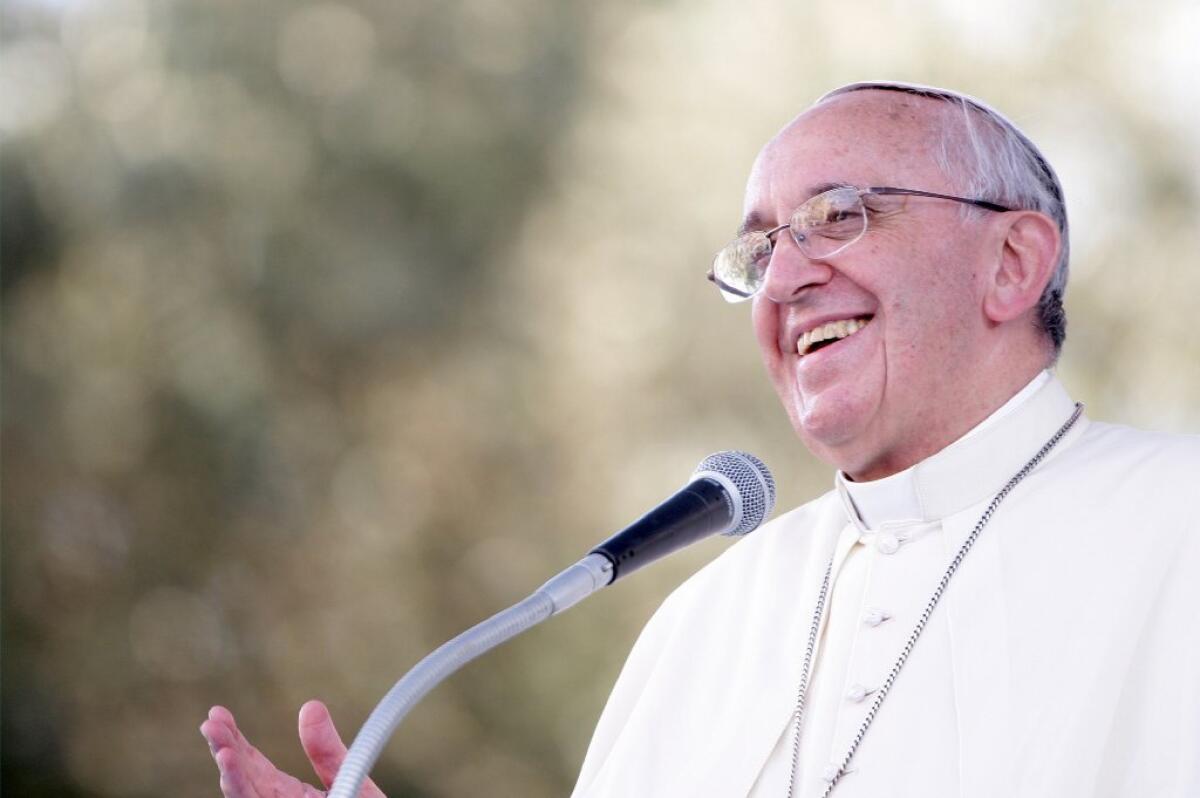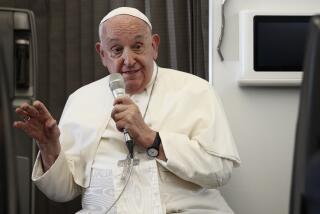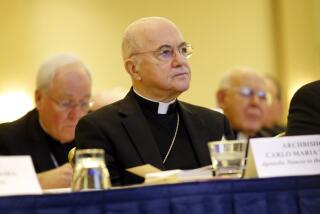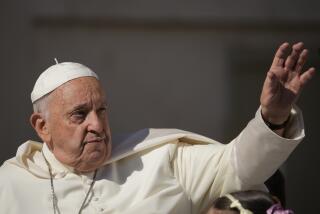Misreading Pope Francis

Pope Francis’ highly publicized recent interview with an Italian Jesuit magazine has ushered in a new era for the Roman Catholic Church — an era of record levels of misinterpretation of the pontiff’s words, both by the liberal media and by conservative Catholics who have been grousing about Francis ever since he washed the feet of a Muslim girl during Holy Week.
The remark most focused on was this: “We cannot insist only on issues related to abortion, gay marriage and the use of contraceptive methods.... The teaching of the church … is clear and I am a son of the church, but it is not necessary to talk about these issues all the time.”
How were the pope’s remarks portrayed? The New York Times headline for its story about the interview read: “Pope Says Church Is ‘Obsessed’ With Gays, Abortion and Birth Control.” Not to be outdone, the New York Daily News headlined: “Blunt pontiff tells flock to quit yammering about gay marriage, abortion, and contraceptives” Here’s CNN: “Pope Francis: Leave Gays Alone.”
SLIDE SHOW: Pope Francis’ small steps to lift liberals’ hearts
There was also a cavalcade of social media postings. Daily Beast columnist Andrew Sullivan, an openly gay Catholic who had sneered at Francis’ predecessor, Pope Benedict XVI, for calling homosexuality an “intrinsic disorder,” tweeted ecstatically: “I am, I must confess, still reeling from Pope Francis’ new, lengthy and remarkable interview.” Actress Jane Fonda, who isn’t a Catholic but who obviously sees Francis as an ally in her perennial battle against Republicans, tweeted: “Gotta love new Pope. He cares about poor, hates dogma. Unlike US Congress. Cutting $40bil from food stamps.” Matthew Yglesias, a columnist for Slate, confessed in a tweet that he liked “a lot of this new Pope’s ideas, but still have serious doubts about the part where Jesus dies for my sins and rises again.”
Finally came the commentary. Yglesias’ Slate colleague William Saletan wrote a 1,600-word column titled “Pope Francis Is a Liberal” and hinting that the pontiff was on the verge of ditching such Catholic doctrinal “mistakes” as papal infallibility and the ban on birth control. NARAL Pro-Choice America, the pro-abortion lobbying organization, posted an orange e-card on its Facebook page reading “Dear Pope Francis, Thank you. Signed, Pro-choice women everywhere.” House Minority Leader Nancy Pelosi, who has been denounced by her fellow Catholics for supporting abortion rights, declared that Francis was “starting to sound like a nun” — a reference to American sisters who were censured by the Vatican for publicly challenging church doctrine and promoting “radical feminist themes incompatible with the Catholic faith.”
Ironically, many conservative Catholics, who disagree with liberals on practically everything else, actually agree with their archenemies that Francis is poised to radically alter the Catholic Church. A tweet from the group blog Rorate Caeli — so arch-traditionalist that its banner consists of a photo of the last pre-Second Vatican Council pope, Pius XII, who died in 1958 — asserted that Francis may be “the Successor of St. Peter” but “he’s not the owner of the Church or her doctrine.” On Fr. Z’s Blog, an Internet refuge for Catholics fed up with having to sing folk songs at Mass instead of Gregorian chants, a commenter wrote: “It’s insulting to be told we Catholics who are fighting against the great evils of the day are spending too much time on such things (you know, those mortal sin things) and apparently are mean curmudgeons who aren’t nice enough to people.”
In fact, Francis, as he made clear in his interview, isn’t likely to deviate from any aspect of traditional Catholic teaching. He reiterated that God doesn’t “condemn and reject” anyone, including gays, but loves them, is cognizant of the pain they feel and yearns for them to repent of their sins and confess them. The very day after the interview was published, Francis, in an audience with Catholic gynecologists, vociferously denounced abortion as a symptom of today’s “throwaway culture.”
But that is in some ways beside the point. The Catholic Church really is changing, although not exactly in the fashion liberals would like. The church is changing because the world itself is changing. The hegemony of the West, technologically advanced but in demographic, economic, cultural and religious decline, may well be over. The previous pope, Benedict XVI, was born and raised in Germany, and his high aesthetic and intellectual ethos may have represented the last gasp of that rich and self-confident Western European civilization, rooted in Christianity, that gave us Michelangelo, Shakespeare and Mozart.
Christianity is moribund in the European West. It is, however, robustly alive in the East and in the global South, as religion scholar Philip Jenkins noted in his 2002 book, “The Next Christendom: The Coming of Global Christianity.” And it is the Southern Hemisphere — Argentina — from which Francis has sprung.
Francis is the first pope of the Next Christendom. At the moment, it’s not exactly a prosperous Christendom. It is, however, a Christendom that can turn out 3 million people to sleep in their cheap jeans and sweatshirts as they wait for Francis to say Mass on Copacabana beach. These are people for whom gay marriage is a First World problem, and for whom abortion is a desperate measure born of shredded family life and crushing poverty, rather than a “my body, my choice” political cause.
Francis was speaking to those people and for those people in his interview when he said that the church had to be more like a “field hospital after battle.” He was reminding us that nobody is worthless, and that even in these degraded times, Christianity offers hope for all — and, most important, forgiveness.
Charlotte Allen writes frequently about politics and religion. She is the author of “The Human Christ: The Search for the Historical Jesus.”
More to Read
A cure for the common opinion
Get thought-provoking perspectives with our weekly newsletter.
You may occasionally receive promotional content from the Los Angeles Times.










